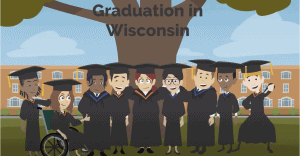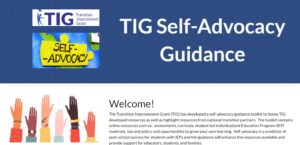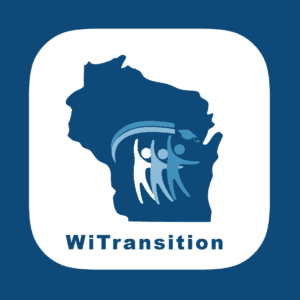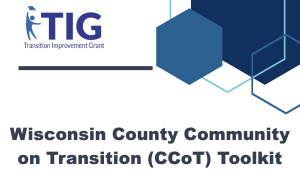Please note TIG will be updating the Self-Advocacy Suite.
Lawrence-Lawson Elementary School
Excellence for all
Lawrence-Lawson in Sparta is living their motto, “Excellence for all, Whatever it Takes.” To achieve this goal, they are dedicated to evolving through continuous improvement. The school has 68% of students receiving free or reduced lunch, 13% qualifying as English language learners, and 10% identifying as students with disabilities. While some schools might see challenges, the teachers and leadership at Lawrence-Lawson know that, as a team, they have built a culture of collaboration and trust that enables them to help all students succeed.
This approach has yielded positive results. They have been recognized as a Wisconsin School of Promise/Recognition for five years. They are also a 21st Century Community Learning Center, and a High-Performing, High-Poverty Title I School of Recognition. Due to their successes, they have been designated a Spotlight School for the third year by the Department of Public Instruction, and are used as an exemplar for other schools. Working with the Wisconsin RtI Center, they have been a PBIS School of Distinction since 2012, and an RtI School of Merit for reading in 2014-15.
What has made them so successful? In a recent visit, Principal Melissa Herek and the school’s RtI Team shared their infectious enthusiasm. Their data is starting to come in, and they are off to the best start of the year in the school’s history. Five years ago, they wouldn’t have believed such a thing was possible.
After completing a survey to measure critical leadership practices, some areas of need were revealed. The principal knew they had to have honest conversations to overcome their challenges, and they had to reach consensus on what was best for kids. One of the ways this was accomplished was by implementing a shared leadership model. That meant everybody’s ideas were considered. Although not every idea was implemented, the team learned how to work toward consensus in decision making.
Starting with behavior
Lawrence-Lawson agreed that focusing on behavior– specifically reducing office discipline referrals–would lay the groundwork for academic success. At first, implementing PBIS seemed overwhelming, so they started small with the playground. They taught explicit behavior expectations and acknowledged kids who were demonstrating them by using “STAR stamps.” Their STAR system stands for Safety First, Take Care of the Environment, Act Responsibility, and Respectfully. The following year, they went school wide: in the lunchroom, hallways, bathrooms, and classrooms. To maintain a responsive system, they hold regular meetings to review their data and determine when additional behavior supports are needed.
Ready for reading
Three years ago–with their behavior system up and running–they decided it was time to turn to academic implementation. Since reading needed the most improvement, they worked on that area first.
A key driver for all their positive change is their continued use of Professional Learning Communities (PLC), including a shared leadership model. PLCs were put in place seven years ago. At that time, these teams met and focused primarily on lesson planning. As the school worked to revamp its academic system the purpose of the group evolved. This helped change the school’s entire system and culture. Meeting twice weekly, they share effective instructional strategies to make practices consistent throughout the school, and they identify gaps in their curriculum so they can continue to improve. More importantly, they use this time to review and interpret data, make decisions about individual students, and work with specialists so they can match supports with needs.
As part of implementing their reading supports, all students participate in PIE: Prevention, Intervention, and Enrichment time. PIE time in action shows everyone working together at first and then splitting unobtrusively into smaller groups depending on the level of support they need. It is critical for staff to measure and assess student growth as a result of universal instruction and PIE time. One way staff does that is by using a data wall. The colorful visual helps teachers focus on student needs. Seeing all the kids’ ID numbered cards together reminds teachers that ALL students are THEIR students, not just the ones in their individual classrooms.
Using data for decision making
Moving forward, Lawrence-Lawson is focusing on their
equitable, multi-level system of support by committing to ongoing improvement, thoughtful planning, and deliberate action. They recognize their improvement opportunities and turn toward them to find solutions, rather than shrinking away from the challenges. They use data for reflection, thinking, and decision making. They have a strong continuum of supports that they’ve put in place, and are constantly examining ways to do better. All staff are considered leaders and believe that empowerment contributes to a positive culture which supports instruction.
All staff are considered leaders and believe that empowerment contributes to a positive culture which supports instruction.







 TIG Self-Advocacy Guidance Google Site
TIG Self-Advocacy Guidance Google Site 
 Wisconsin County Community on Transition (CCoT) Toolkit
Wisconsin County Community on Transition (CCoT) Toolkit